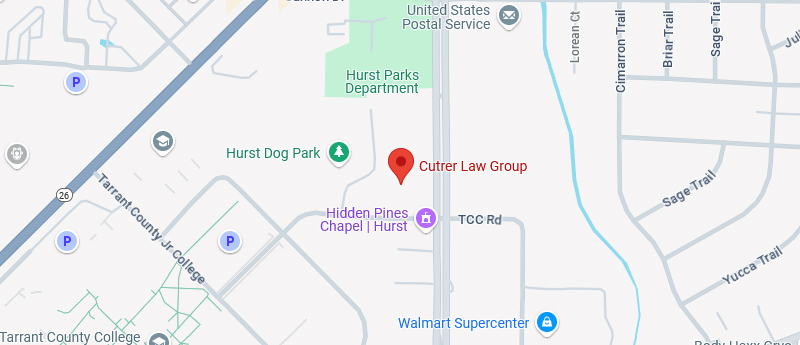Under Texas Law, What Actions May Violate a Child Custody Order?
Custody orders, mandated by the Texas courts, are designed to outline each parent’s responsibilities and duties towards their child after their divorce. These orders determine physical and legal custody of their child and schedules for visitation for the noncustodial parent. Custody orders must be respected to maintain much-needed stability and harmony in your child’s life. They also attempt to provide your child with a healthy relationship with both parents, even though you are divorced; the Texas court deems this in the child’s best interests. Violation of a child custody order can vary, but the court takes this matter seriously and can inflict serious legal consequences on the violating parent.
Just some of the more common ways you, or your ex-spouse, might violate a child custody agreement are:
- Denial of the other parent’s visitation rights – One parent could deny the other parent’s right to see and spend time with their child. They might say they are ill, etc. Of course, emergencies arise, but consistently avoiding the other parent’s time with their child is a violation.
- Failure to return your child on time after a visit – Keeping your child beyond the scheduled visitation period disrupts the other parent’s time and can be a violation of the child custody agreement.
- Unduly influencing your child’s visitation preferences – Encouraging your child to refuse visits to see their other parent or discouraging communication with the other parent.
- Relocating your child without the proper legal consent – Taking your child out of state or far away from the other parent without the approval of the court.
The key to the matter is that the court mandates a child custody agreement that both parents must obey. If you feel your child custody agreement is being consistently violated, then you should seek the professional, experienced guidance of a Texas child custody lawyer as soon as possible. By doing so, you can get the legal help you must have in this stressful and disturbing situation.
What Provisions Are Commonly Included in Texas Child Custody Orders?
It’s fair to say that, most likely, no two child custody orders are the same, as all these situations differ. That said, most child custody orders cover an array of topics, some of which are most common, such as:
- Conservatorship – This term refers to your legal rights and responsibilities as parents toward your child. In Texas, the two types of conservatorships are sole-managing conservatorship and joint-managing conservatorship. The Texas court usually determines which is best for any situation and child.
- Physical custody of your child – Here, the court dictates your child’s primary residence and usually outlines the visitation schedule for the noncustodial parent.
- Which parent is the decision maker for the child – The court will designate which parent makes essential decisions in your child’s life, such as their education, healthcare, religion, etc. This can be granted to one or both parents.
- Child support orders – The court has the means to determine the dollar amount needed to support your child adequately. This is paid by the noncustodial parent and is determined by numerous factors such as income, the child’s needs, and the Texas law guidelines.
- Modifications and enforcement of the agreement – The court commonly outlines the specific process that must be used to modify or enforce all aspects of the custody order. So, if things change, both parents know what must be done to make any changes and be in compliance with the order.
Be aware that all the significant details and language of a court order concerning child custody will always vary depending on the specifics of your case. However, custody (or other orders) must be followed once the court has ordered and finalized it. If you have an issue with a child custody agreement, seeking the compassionate, knowledgeable guidance of a Texas child custody lawyer is always the best path to follow.
What Steps Should I Take If My Ex-Spouse Doesn’t Follow Our Child Custody Order?
First, never attempt to take things into your own hands. The courts (and your child custody order) provide detailed steps to solve these issues while complying with Texas law.
Just a few of the first steps you might take are:
- Document all the violations – Keep records of missed visits, late returns, communication refusals, etc., and provide this documentation to your lawyer.
- Always be calm when communicating – Attempt to address the issue with your ex-spouse without escalating the situation and creating more conflict; sometimes, minor violations can be resolved without legal action.
- Obtain professional legal help – Your compassionate and experienced child custody lawyer will guide you down the right path and, if needed, file a motion for enforcement or seek modifications to your child custody order.
- Have your lawyer file a motion for enforcement – Texas Family Code §157.001 provides you with the necessary legal protections. When your lawyer files a proper legal motion, they will ensure you comply while effectively solving your child custody issue.
What Are Some Legal Penalties a Parent Could Face by Not Following a Child Custody Order?
If a parent refuses to follow a mandated child custody order in Texas, serious legal consequences can occur.
Just some of the things that can occur are:
- The parent can be held in contempt of court – The non-compliant parent may be found in contempt of court, which can often result in fines and possibly jail time.
- Modification of the child custody agreement – The non-complying parent may risk having the custody arrangement modified in favor of their ex-spouse. Remember, the Texas courts will always prioritize what’s in your child’s best interest.
- Immediate fines or jail time – In some cases, a court may impose fines or jail time on the parent who does not adhere to the child custody order.
- Legal enforcement actions – If one parent is denied court-ordered custody or visitation, they can file a motion to enforce their order. These motions usually lead to a hearing, at which the court will take legal action to ensure future compliance.
If you’re in this situation, and your ex-spouse isn’t following your child custody order, take the most prudent and wise legal action and consult with a well-versed and knowledgeable child custody lawyer to determine your next steps. Don’t add negatively to this stressful and dire situation; your skilled and empathetic lawyer will always guide you down the right legal path.
My Ex-Spouse Is Violating Our Child Custody Arrangement; How Should I Proceed?
Under Texas law, a child custody order is a legally binding document issued by a judge or court that mandates concrete actions, restrictions, etc., concerning your child that must be followed. Alternatively, not following a mandated child custody order undermines the legal process and jeopardizes the well-being of your child. The court mandates these orders to establish clear guidelines for parental conduct, which are crucial for maintaining stability and security within families. Sadly, these orders are often ignored or violated; however, you do have powerful legal options.
The family lawyers at the Cutrer Law Group have over twenty years of valued experience in Tarrant County managing all facets of family law, including child custody, etc. Call them today at 817-854-1651, and they will provide you with the caring, compassionate, and professional guidance you need at this highly stressful time.





 1845 Precinct Line Road
1845 Precinct Line Road info@akcfamilylaw.com
info@akcfamilylaw.com 817-854-1651
817-854-1651



